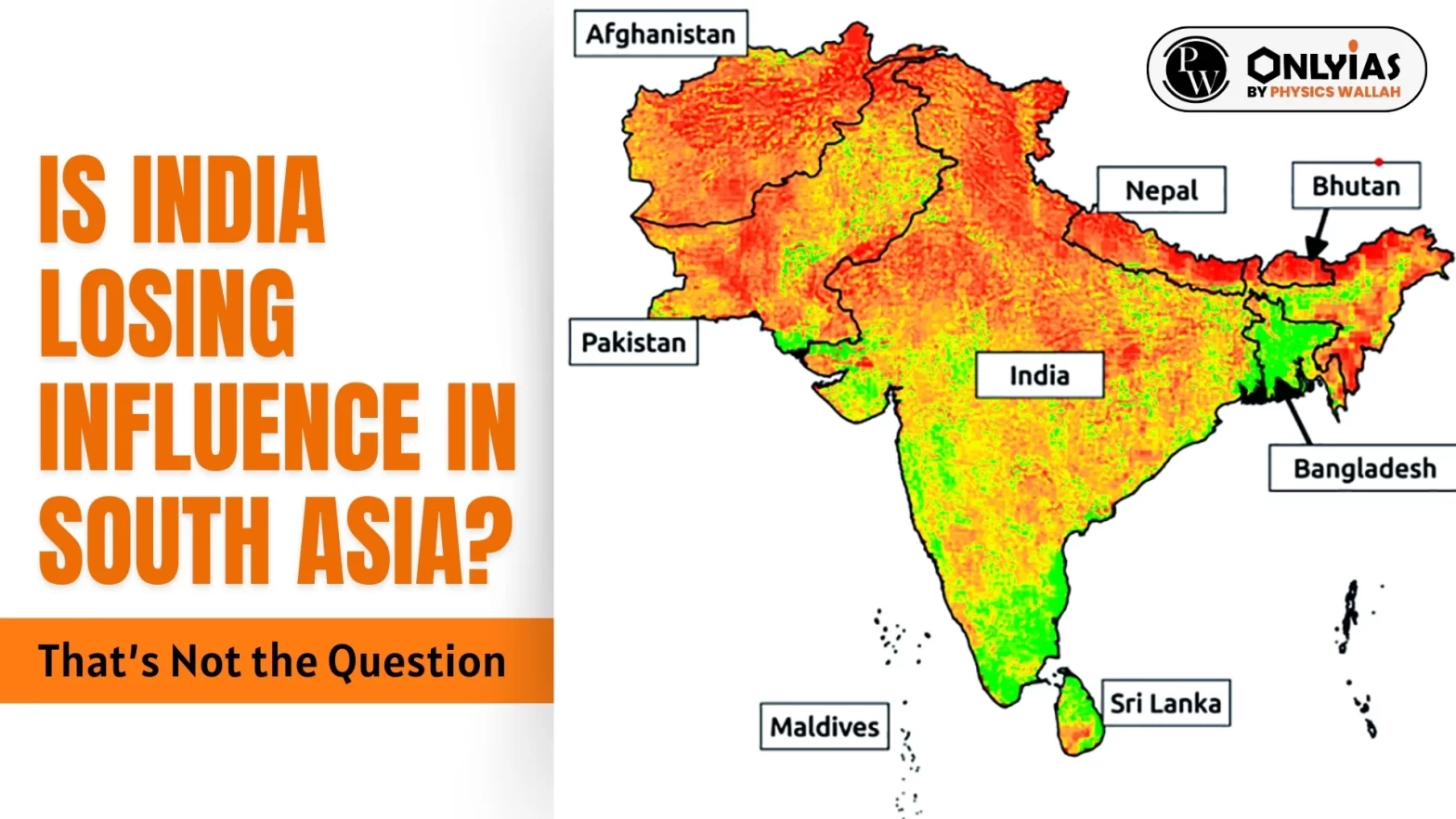Context: This article is based on an Editorial “C Raja Mohan writes | Is India ‘losing’ South Asia? That’s not the question” which was published in the Indian Express. As neighboring nations shift policies against India’s interests post-government changes (as recently Maldives asked India to withdraw its military from Maldives) a pressing question emerges: Is India losing influence in South Asia?
| Relevancy for Prelims: India and South Asian Countries, SAARC Countries, and BIMSTEC Countries.
Relevancy for Mains: India’s Relationship With Its South Asian Neighbours. |
Shifting Perspectives: Disentangling India’s Evolving Role in a Post-Colonial South Asia
- The notion that Delhi is losing South Asia is rooted in India’s collective nostalgia for the legacy of the British Raj.
- During that era, the Subcontinent became a powerful geopolitical entity, established regional hegemony, and turned the neighboring territories into protectorates and buffers.
- However, along with the British departure from the Subcontinent, a lot has changed.
After British Departure
- Sri Lanka, Myanmar became independent sovereign nations, further the Subcontinent’s Partition on religious lines sundered its unity and left unresolved boundary and territorial disputes that continue to hobble the region.
Different Views over India’s Approach in South Asia
- Hawks: The hawks are upset that our neighbors dare to challenge India’s presumed primacy in the region.
- Doves: They think that it is all India’s fault that our neighbors turn against us.
India’s Challenges in South Asia
- Kashmir as the Unfinished Agenda: Pakistan sees the Kashmir question as the unfinished agenda of Partition and is not willing to put it aside — even temporarily — to develop a limited but positive engagement with India and facilitate South Asian regional integration under the auspices of SAARC.
- Economic Partitions and Political Barriers: The Subcontinent’s political partition was paralleled by an economic divide, as India and its neighbors embraced autarky, reinforcing borders as both political and commercial barriers.
- RSS’s ‘Akhand Bharat,’ vision: The RSS version of “Akhand Bharat” or “Greater India” or the liberal version of an integrated Subcontinent are both viewed with deep suspicion.
- The neighboring elites see a fundamental contradiction between a regional order led by India and their national sovereignties.
- India’s Political Shadow in Domestic Politics: India looms large in the domestic politics of our neighborhood.
- If one competing faction of the neighborhood elite wants India to intervene on its behalf in the domestic political struggles, the other faction denounces India’s interventionism as hegemonic.
- Political Flip-Flop: The same party and the same leader can adopt both positions at different times towards India.
- For Example: Imran Khan attacked Pakistan’s PM Nawaz Sharif for his presumed warmth towards Prime Minister Narendra Modi
- However, in the run-up to the 2019 Indian general election, he stated that PM Modi was Pakistan’s best bet in resolving the Kashmir question and hoped that he would be reelected.
- China’s Footprint in South Asia: The dramatic expansion of China’s economic and military influence in the Subcontinent challenges India’s influence with neighboring countries.
- Other Countries Influence: The influence of the Middle East — Qatar, Saudi Arabia, Turkey, and the United Arab Emirates — is rising amidst their growing economic and military capabilities in South Asia.
Continue Reading: India’s Dilemmas In The South Asia Region
India’s Strained Frontiers
- West: In the west, the conflict between the Taliban and the Pakistan army is sharpening.
- East: In the east, the ethnic armed groups and pro-democracy forces have joined hands to seriously challenge the Burmese army’s control of its vast northern territories.
Conclusion:
The real question is not about India “losing South Asia” but finding ways to gain ground in a changing region. India has enough capabilities to not only preserve its interests, but also expand its influence in its neighborhood. To do that effectively, though, Delhi must discard the obsession with the old South Asia.
| Prelims Question (2017)
Consider the following in respect of Indian Ocean Naval Symposium (IONS):
1. Inaugural IONS was held in India in 2015 under the chairmanship of the Indian Navy.
2. IONS is a voluntary initiative that seeks to increase maritime cooperation among navies of the littoral states of the Indian Ocean Region.
Which of the above statements is/are correct?
(a) 1 only
(b) 2 only
(c) Both 1 and 2
(d) Neither 1 nor 2
Ans: (b) |
![]() 27 Dec 2023
27 Dec 2023
